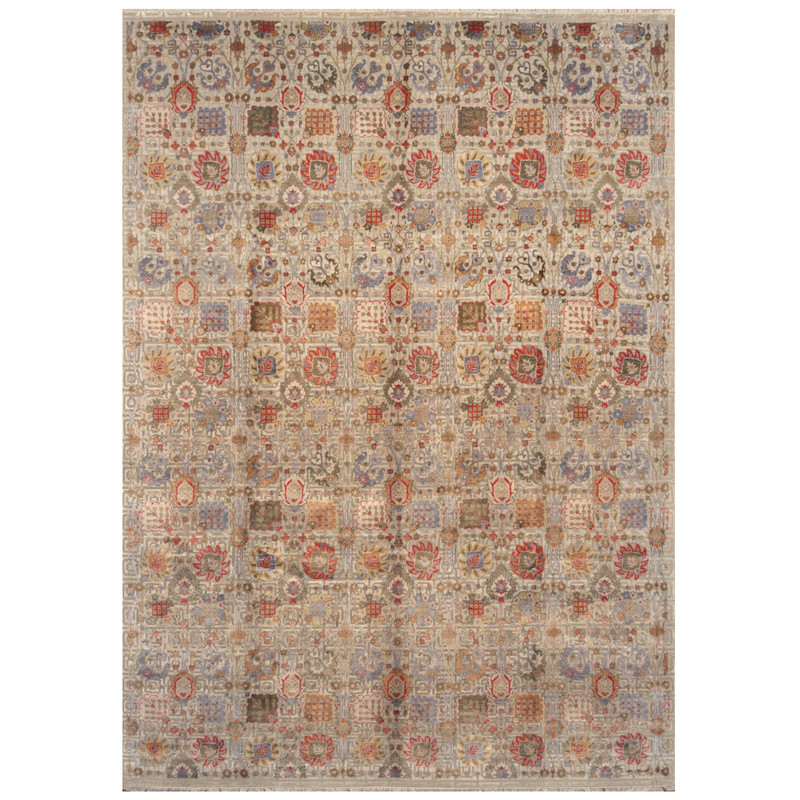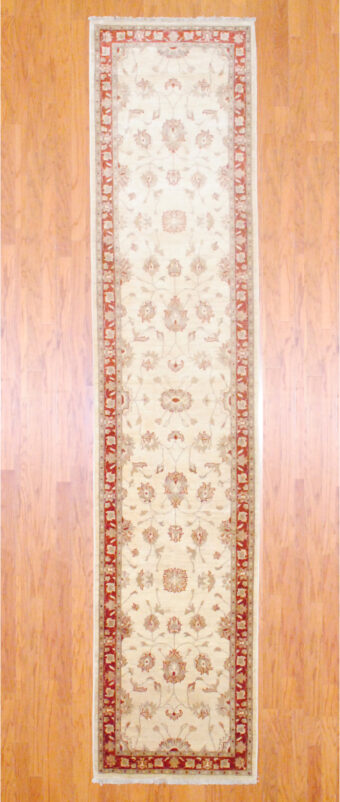Description
One name associated with English rugs is William Morris, who was an artist, writer, designer, and social activist. His designs included floral motifs with arabesques, influenced by Persian styles. The dominant colors used in William Morris designs were blues and reds. Many 18th century rugs even copied the ceiling designs of the rooms for which they were commissioned. William Morris designs were originally made between 1878 and 1881, however this particular rug design was copied and re-created by skilled village weavers in India. Those vegetable dyes most commonly used are madder, the root of a spindly bush which grows abundantly in many carpet-producing area which is used to create a red color. Walnut peel is used for dark brown, pomegranate peel for light brown, and sparak which is a wild flower from the steppes, used for yellow.
Herat Oriental works with over 2,000 village weavers to create beautiful, authentic, handmade rugs. The majority of the weavers are women, who live in the villages of Afghanistan, Pakistan, Persia and India. As we grow, we are able to create more jobs for female weavers who otherwise would not have the opportunity to do so. The community also thrives from rug weaving as the local farmers benefit from wool sales, and the local artisans create natural and vegetable dyes for the weavers to use in their designs. Due to the handmade nature of our rugs, the size may vary from as advertised by 3-4 inches. Regular vacuuming and annual professional cleaning will keep your rug looking new for years to come.




